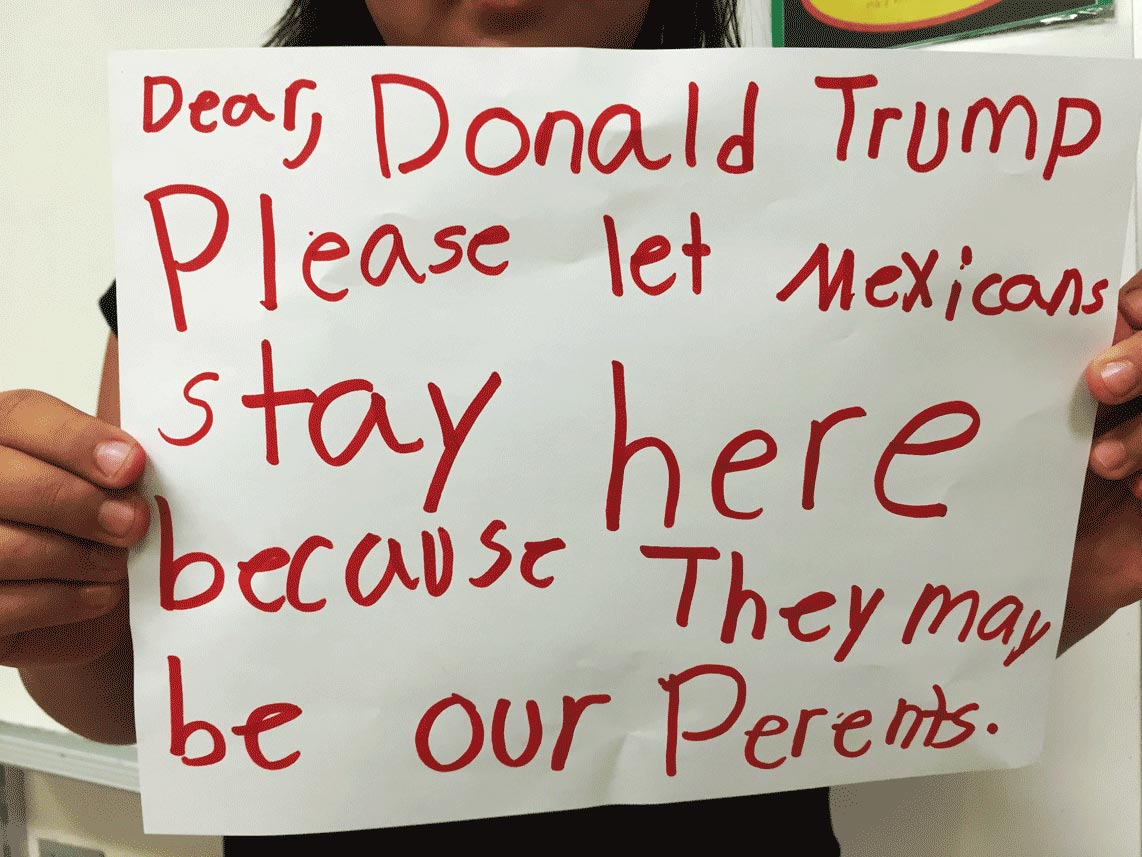As soon as someone from a community gets deported, others start to notice. Deportation creates fear amongst a community, while more pressing matters concern the welfare of the child, both mentally and physically, whose parents have just been taken away. The topic of my research project was, how children perceive the impacts and experiences of deportation on the community. The goal, hopefully, is to get the public more engaged in the conversation. To encourage them to be a little more aware, not only of the initial impacts of deportation but of the longer lasting effects. Now you may be asking, what those effects specifically are and why is it even important for non academics to be aware if we aren’t the ones doing the research? It is an indisputable fact, the children of today will, tomorrow be it leaders. It should be a concern of every parent, whether they are citizens of a particular country or not, or for any fact of any matter, to understand the implication of the reality for their child.
For a moment, imagine you are living in a country in which you are not a citizen. Now imagine that at the same time, you are trying to raise two kids. To what would you want to understand for the betterment of your children? Are they safe now and will the be secured later? How are they feeling now and what will they end up doing later? Is there anything I could be doing to help more than I am now? It falls within logic to say that if you care about your kids and you care about the environment he/she is subject to grow up in, you should therefore care about others kids. Deportation without Representation, according to this article, immigrants facing deportation have been denied basic due process protection. Tens of thousands of immigrants have either been denied a lawyer, because “although poor defendants in criminal courts are entitled to court-appointed lawyers, people in immigration courts are not,” or even when they receive legal assistance, a study from Cardoza Law Review revealed, effort and capabilities of those attorneys were a little less than competent. The main points of this article revolved around the lack of available lawyers able to assist on issues of immigration. All in all, it was a fairly interesting article to read. Though I felt that it didn’t pay much attention to the other issues facing deportees. That this article breezed past, unintentionally of coarse, the sociological aspect of deportation. The advocate for more lawyers fall far from the patterns of social relationships, social interaction and culture. From a sociological standpoint, we aim to inform and contribute to popular discourse on all levels of communication, this includes a look into the lives of those whose parents have just been deported, the ultimate product of our decisions, our kids. The lawyers and criminals of tomorrow's society. They are the ones who will either grow to help or harm our society. So if we are study the sociology of deportation, then we must discuss how our young ones will perceive and experience the impacts. If we can engage the public into conversations like this one, then we may hope to have a real high chance of mitigating and severely reducing the impacts of deportation.
The scholarly research states that community-wide fear and social isolation accentuate the psychological impacts on children, the vulnerability of a child's parent affects them severely in regards to their emotional well-being, children with an incarcerated parent are more likely to engage in delinquent behavior and experience mental health problems. The research also states that because of these matters, many are actively involved with statewide advocacy groups seeking to reform national immigration laws. Others have conducted research using participatory methods, which helped identity gaps in health care. Research that was also conducted by others included a quantitative exploration of themes that arose across findings in a participatory action research.
My topic, should help you, if not advocate the need for public discussion about the impacts on children due to deportation. These same children experiencing such events are going to be members of our society tomorrow, so we should all try our best to reduce the impacts with things like improved health care, and trust within a community.


